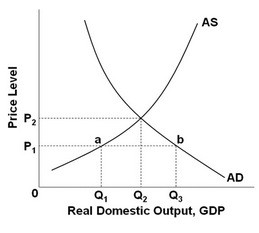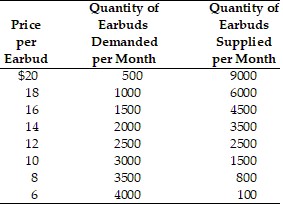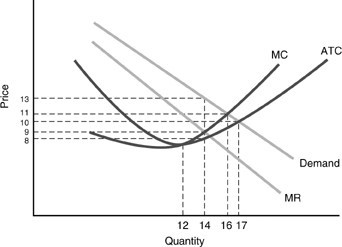What are the likely economic effects of social regulation on prices, innovation, and competition?
What will be an ideal response?
The economic consequences of social regulation largely impose increased cost on businesses. The higher costs of production lead to higher prices and less output because it can reduce labor productivity. Regulation may also reduce the rate of innovation in an economy because of the higher costs of meeting regulatory standards in bringing a product to market. There is also the potential for a heavier burden to be placed on smaller firms that have fewer financial resources to devote to regulatory compliance, resulting in less competition.
You might also like to view...
 Refer to the above graph. This economy is at equilibrium:
Refer to the above graph. This economy is at equilibrium:
A. at point b. B. at price level P1 and output Q1. C. at point a. D. at price level P2 and output Q2.
 According to the above table, there is an excess quantity demanded of 1500 earbuds at the price
According to the above table, there is an excess quantity demanded of 1500 earbuds at the price
A. $12. B. $10. C. $14. D. $8.
 In the above figure, what is total cost at the profit-maximizing point?
In the above figure, what is total cost at the profit-maximizing point?
A. $182 B. $126 C. $170 D. $112
Human capital can be produced through on-the-job training.
Answer the following statement true (T) or false (F)